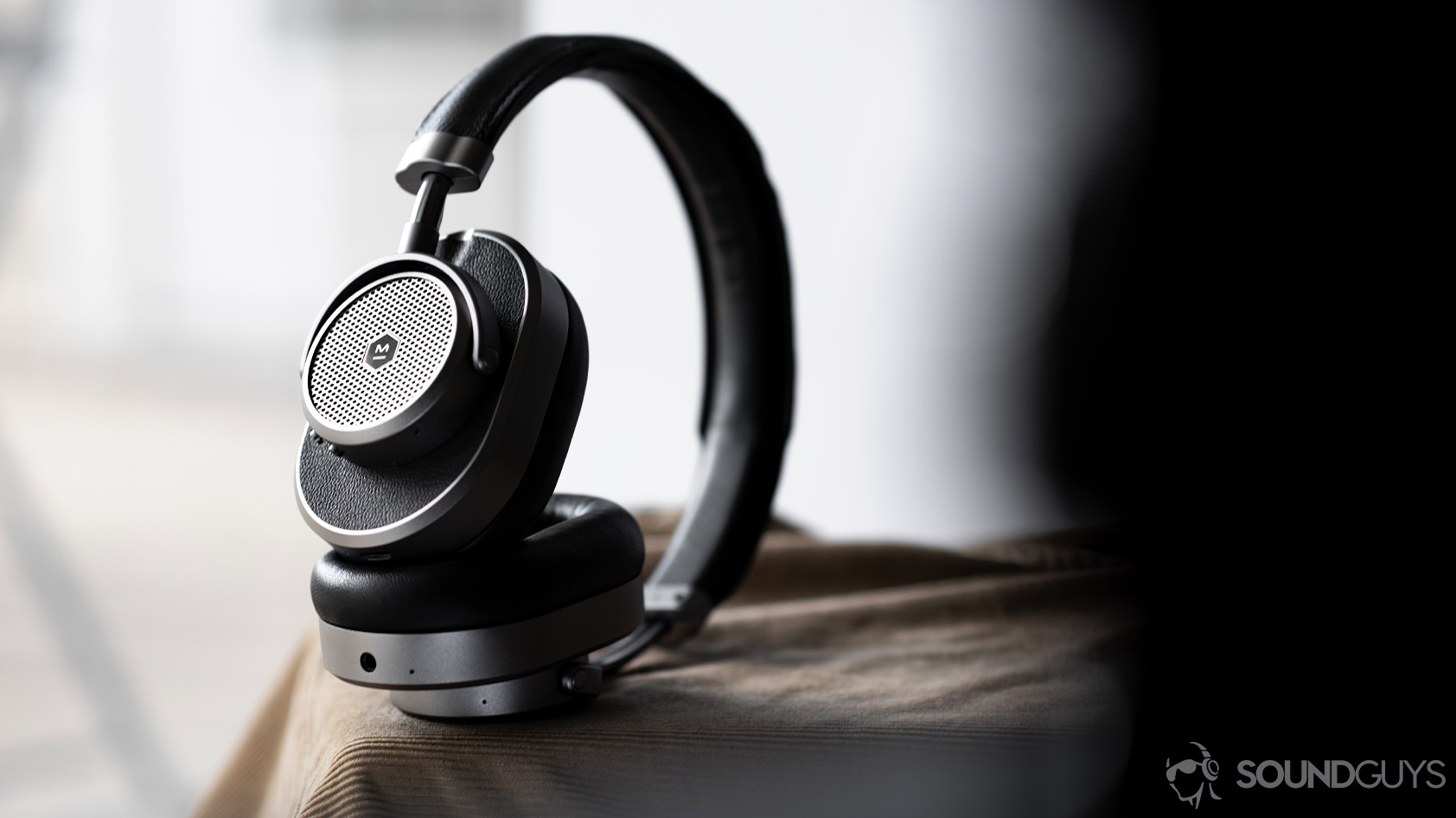All products featured are independently chosen by us. However, SoundGuys may receive a commission on orders placed through its retail links. See our ethics statement.
aptX Adaptive: The new king of Bluetooth?
Published onNovember 21, 2024
Released in 2018, Qualcomm’s aptX Adaptive is a Bluetooth audio codec that combines robust, premium audio quality, low-bit rate transmission, scalability, and the opportunity for low latency. It’s intended to provide a superior wireless listening experience, and sets out to solve a number of the biggest issues in Bluetooth audio.
Editor’s note: this article was updated on November 21, 2024, to address user-submitted FAQ.
What’s so good about aptX Adaptive?
As the name suggests, aptX Adaptive is an adjustable codec. Rather than being set at a locked bitrate like aptX “Classic,” Low Latency, and aptX HD, this version of the codec dynamically scales the bitrate to adjust its quality. The codec also incorporates aptX Low Latency technology by enabling it to work with a shared, rather than dedicated, wireless antenna. As a result, the low-latency version is being phased out in the future.

aptX Adaptive’s bitrate scales between 279kbps and 420kbps for CD and Hi-Res quality music. You’ll notice that these bitrates are lower than the 352kbps and 576kbps of aptX Classic and HD respectively. Qualcomm states that the new codec is much more efficient than the previous version, producing the same sound quality with an even smaller amount of data. This dynamic scaling is very different from codecs like LDAC, which jumps between just a few preset quality levels.
aptX Adaptive scales between the quality of aptX Classic and aptX HD, and incorporates Low Latency technology.
The codec supports audio file playback with 16 and 24 bit-depths at 44.1 and 48kHz sample rates. Algorithm latency is also down to less than 2ms at 48kHz, with a system round trip falling somewhere between 50 and 80ms depending on the implementation. This isn’t quite as fast as Low Latency’s sub 40ms speed but should be virtually imperceivable. Other codecs can reach over 200ms latency, and even the old aptX clocked in at around 150ms.
Speaking of latency, aptX Low Latency is being retired after the launch of Adaptive, which has some implications for backward compatibility. When connecting to Low Latency devices, Adaptive will default back to aptX Classic. In other instances, aptX Adaptive simply matches the capabilities and bitrate of the Classic or HD-capable device, so product transition should be seamless.
Another included feature is aptX Voice, which is designed to significantly improve the quality of voice for making calls over Bluetooth accessories. It does this by delivering 32 kHz voice call quality within the Bluetooth Hands-Free Profile.
Why use a variable bitrate?
There are several reasons why you might want a variable bitrate codec. The first is the power trade-offs versus quality. There’s no point encoding, transmitting, and decoding high-resolution audio if you are only streaming music from a so-so quality source, such as any number of music streaming services. This just wastes power and precious playback hours.
Scaling back bitrate avoids signal dropout in busy radio frequency environments such as near WiFi hubs.
Secondly, the high bandwidth and transmission speeds required for high bitrate codecs are more susceptible to errors and packet loss from radio interference and blockage. There’s a good chance that you’ve heard your Bluetooth headphones drop out randomly. An adaptive codec monitors the quality of the connection and surrounding radio environment and adjusts its bitrate to provide a more consistent playback experience.
aptX Adaptive uses your smartphone to monitor the surrounding radio environment. Therefore headphone playback time isn’t affected by using this technology. The codec also dynamically adjusts the bitrate depending on your content, optimizing it based on audio quality and latency requirements, such as when gaming or watching a video.
How does aptX Adaptive compare to LDAC?

Head to head, LDAC still offers up the highest sample rate support with 24-bit/96kHz playback and its 990kbps and 660kbps modes also offer a higher data throughput. Bit-depth support is more important than the sample rate though, especially with Bluetooth codecs. Furthermore, we have to take these bitrates with a pinch of salt, as different algorithms prevent a like for like bitrate comparison.
Numbers aside, aptX Adaptive’s advantage over LDAC is that quality differences as the codec adapts its bitrate will be much less noticeable. LDAC will lop off one-third or two-thirds of its throughput with no scalability in between, which can be rather jarring. aptX Adaptive may lower its bitrate notably, but it’s also capable of scaling down at intervals of just tens of kbps for minimal quality differences, rather than large 330kbps jumps. This all happens on the fly, with no audio drop out when changing bitrate. Having tested it in person, the transition really is seamless.
If smartphones are ditching wired headphones, consumers need a low latency codec option for gaming, voice calls, etc.
Furthermore, no other codecs integrate extremely low latency support and dynamic adaptation based on content playback. As smartphones have mostly ditched wired headphones, consumers need a low latency codec option for growing markets like gaming on-the-go. Even LDAC’s lowest quality option is not a low latency alternative. aptX Low Latency has always been the best codec in this regard, and the technology’s incorporation into aptX Adaptive is a big win for versatility.
| aptX Adaptive | LDAC | AAC | SBC | |
|---|---|---|---|---|
Max bit-depth | aptX Adaptive 24-bit | LDAC 24-bit | AAC 16-bit | SBC 16-bit |
Max sample rate | aptX Adaptive 48kHz | LDAC 96kHz | AAC 44.1kHz | SBC 48kHz |
Bitrate | aptX Adaptive 279 - 420kbps (dynamic) | LDAC 330/660/990kbps (switchable) | AAC 250kbps (fixed) | SBC up to 345kbps (fixed) |
Latency | aptX Adaptive 50 - 80ms | LDAC >200ms | AAC ~200ms | SBC ~200ms |
aptX Adaptive is the right call
Although another codec might sound like the last thing the ecosystem needs right now, Qualcomm has clearly put a lot of thought and technology into Adaptive. Although some might still be hankering for higher data throughput, Qualcomm has avoided the tunnel vision of projects like LDAC and has rightly focused on the bigger picture.
aptX Adaptive is designed as a one-size-fits-all solution that not only caters to high-quality music over Bluetooth but also to the demand for watching videos and playing games while wearing wireless headphones. No other Bluetooth codec currently boasts this range of versatility.
Frequently asked questions
No.
Both have their advantages, but aptX HD has been superseded by aptX Lossless for newer products.